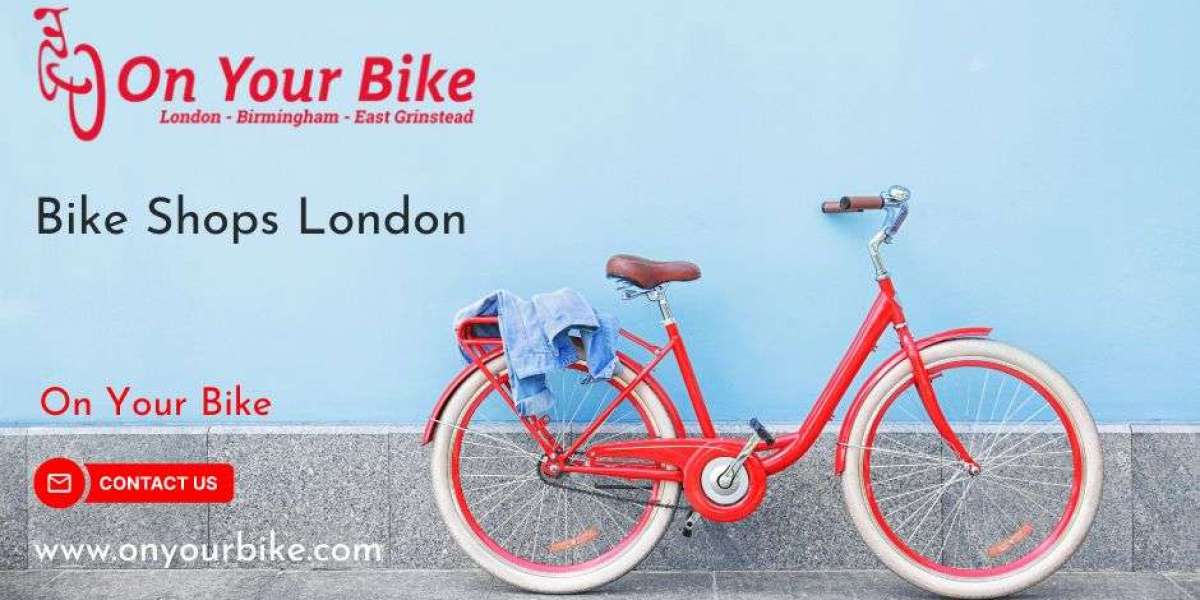Cycling in London is not only an excellent way to stay fit and reduce your carbon footprint, but it's also a practical solution to avoid the city's notorious traffic. Whether you're commuting to work, running errands, or just exploring the city's scenic routes, ensuring the security of your bicycle is paramount. With bike theft being a persistent issue, understanding the different types of bicycle locks and knowing the best practices for securing your bike can save you from potential loss and frustration. This guide will walk you through everything you need to know to keep your bike safe.
Understanding the Threat
Before diving into the various types of bicycle locks available, it's crucial to understand the threat landscape. Bike thefts in London are common, and thieves often target poorly secured bikes. Even in seemingly safe areas, an unattended bike without proper security can be stolen within minutes. This underscores the importance of investing in a reliable bicycle lock and knowing how to use it effectively.
Types of Bicycle Locks
1. U-Locks (D-Locks)
U-locks are one of the most popular choices for cyclists in London due to their robust security features. These locks are made of hardened steel and are designed to resist cutting, leverage attacks, and other common theft techniques.
Pros:
- High security
- Durable and resistant to most cutting tools
- Available in various sizes
Cons:
- Heavier than other types of locks
- Limited locking radius, which can be restrictive
When shopping at a cycle shop in London, ask for high-quality U-locks with solid steel construction. Brands like Kryptonite and Abus are well-regarded for their reliability.
2. Chain Locks
Chain locks offer flexibility and high security, especially those made with hardened steel links. They are versatile and can secure your bike to a variety of fixed objects.
Pros:
- Flexible and can lock multiple bikes
- High security if made from hardened steel
- Long enough to secure both frame and wheels
Cons:
- Heavy and bulky
- Can be more expensive than other locks
For those looking for reliable chain locks, most bicycle shops in London stock brands such as OnGuard and Hiplok, which are known for their durability and security features.
3. Cable Locks
Cable locks are lighter and more flexible than U-locks and chain locks. However, they offer less security and are best used as secondary locks.
Pros:
- Lightweight and easy to carry
- Flexible and can secure to various objects
Cons:
- Easy to cut with basic tools
- Not recommended as the primary lock
If you frequently use cycle hire in London or London bike hire services, a cable lock can be a convenient secondary lock to secure accessories like helmets and seats.
4. Folding Locks
Folding locks are a newer option, combining elements of both U-locks and chain locks. They offer good security with the added benefit of compact storage.
Pros:
- Compact and easy to carry
- Good security
- Flexible locking options
Cons:
- Can be more expensive
- May not be as secure as U-locks or heavy chain locks
Check out your local bike shops in London for brands like Abus, which offer a range of folding locks suitable for urban cyclists.
Best Practices for Securing Your Bike
1. Location, Location, Location
Always choose a well-lit, busy area to lock your bike. Thieves prefer to operate in secluded spots where they are less likely to be noticed. When possible, use designated bike racks or stands, as these are often designed to accommodate secure locking.
2. Lock the Frame and Wheels
Use a U-lock or chain lock to secure the frame of your bike to a fixed object. If you have quick-release wheels, use a secondary lock to secure them. For additional security, consider locking both wheels and the frame.
3. Avoid the Ground
Ensure that your lock does not rest on the ground, as this makes it easier for thieves to break it using a hammer or other tools. Keep the lock elevated and tight to minimize leverage.
4. Remove Accessories
Remove any easily detachable accessories such as lights, saddlebags, and GPS units. Thieves are opportunistic and may steal anything of value that's left on your bike.
5. Double Up
Using two different types of locks can deter thieves, as they will need different tools and more time to break them. Combining a U-lock with a cable or chain lock is a common strategy among London cyclists.
Additional Security Measures
1. Bike Registration and Marking
Registering your bike with services like BikeRegister helps police recover stolen bikes and makes it harder for thieves to sell them. Mark your bike with a unique identifier that can be traced back to you.
2. Insurance
Consider getting bike insurance, especially if you have an expensive bike. Many insurance policies cover theft and damage, providing peace of mind.
folding bike sale | Bike Rental | Road Bikes | Sale Bikes |
3. GPS Trackers
For high-value bikes, GPS trackers can be a worthwhile investment. These devices can help locate your bike if it's stolen. Some bike shops in London offer models that are discreetly integrated into the bike’s frame.
4. Regular Maintenance
Keeping your bike in good working condition can deter thieves. A bike that appears neglected or broken is more attractive to thieves. Regular maintenance at a bike repair shop in London ensures your bike is always ready to ride and less likely to be targeted.
Cycle2Work Scheme
If you're commuting to work, the Cycle2Work scheme is a great way to acquire a high-quality bike and accessories at a reduced cost. This government initiative allows employees to purchase bikes through salary sacrifice, saving money and spreading the cost over several months.
Participating in the Cycle2Work scheme also means you can invest in better security for your bike, as the savings can be used to buy a high-quality lock. Many bike shops in London are part of this scheme and can provide advice on the best security options for your new bike.
Conclusion
Keeping your bike safe in London requires a combination of the right equipment and smart practices. Investing in a high-quality lock and using it correctly is the first step in preventing theft. Always be mindful of where and how you lock your bike, and consider additional security measures like bike registration, insurance, and GPS trackers.
Whether you're using cycle hire in London, visiting a cycle shop in London for a new lock, or getting a tune-up at a bike repair shop in London, staying informed and prepared can make all the difference. By following these guidelines, you can enjoy cycling in the city with peace of mind, knowing your bike is well-protected.
Read Also This Blog







